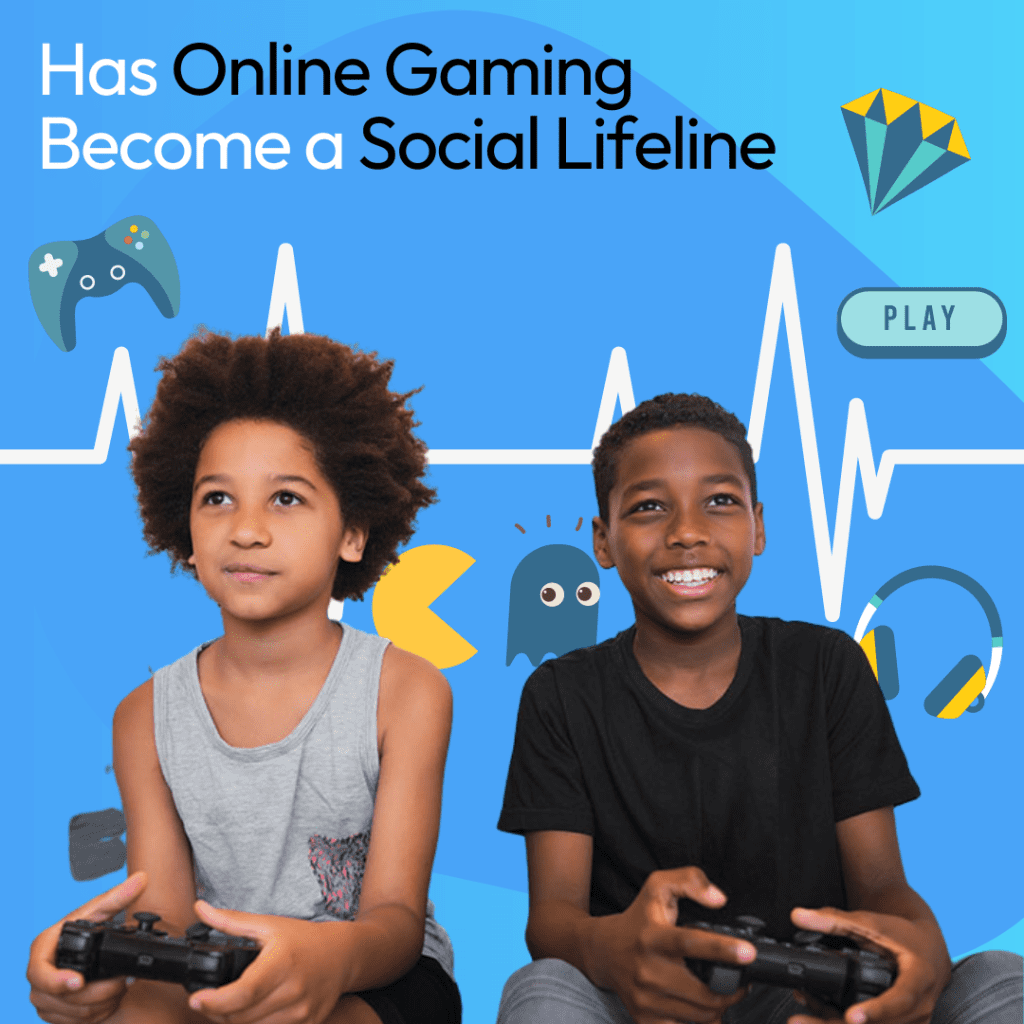The digital era has transformed the way children connect and socialize, with online gaming emerging as a popular avenue for social interaction. In this blog post, we will explore whether online gaming has become a social lifeline for kids. By examining the benefits and drawbacks of online gaming as a social platform, we can gain insights into the evolving landscape of socialization among young gamers.
The Power of Online Connectivity
Online gaming offers a unique space for children to connect and engage with peers from around the world. Through multiplayer games, they can collaborate, communicate, and build friendships in virtual environments. This online connectivity transcends geographical boundaries, enabling kids to form social connections regardless of distance. For some, online gaming provides a sense of belonging and camaraderie, fostering a social lifeline in an increasingly interconnected world.

Positive Aspects of Online Gaming as a Social Platform
Online gaming as a social lifeline for kids can have several positive aspects:
- Community and belonging: Gaming communities provide a space where children can find like-minded individuals who share their interests and passion for gaming. This sense of community can foster a feeling of belonging and support.
- Social skills development: Online gaming encourages communication, teamwork, and problem-solving among players. Engaging in multiplayer games can enhance a child’s ability to collaborate, negotiate, and build relationships.
- Inclusivity and diversity: Online gaming transcends social, cultural, and physical barriers, allowing children to interact with peers from various backgrounds and experiences. It promotes diversity, empathy, and understanding among players.
Challenges and Considerations
While online gaming can be a social lifeline, it also presents some challenges and considerations:
- Screen time and balance: Excessive screen time spent gaming can lead to sedentary lifestyles, neglect of other activities, and potential social isolation. It is important for children to strike a balance between online gaming and offline interactions.
- Online safety: The online gaming landscape can pose risks, including exposure to inappropriate content, cyberbullying, and interactions with strangers. Parents should educate their children about online safety and monitor their online activities.
- Development of offline social skills: While online gaming can facilitate social connections, it is essential for children to also develop interpersonal skills in face-to-face interactions. Encouraging offline activities and fostering real-world relationships is crucial for a well-rounded social development.
Online gaming has undeniably become a significant social platform for kids, providing a sense of community, connection, and belonging. It offers opportunities for social skills development and the exploration of diverse perspectives. However, it is vital to balance online interactions with offline experiences to ensure a comprehensive social development. Parents play a critical role in monitoring screen time, guiding online safety practices, and encouraging a healthy balance between virtual and real-world socialization. By fostering a holistic approach to social connections, we can harness the potential benefits of online gaming as a social lifeline while nurturing children’s social skills and well-being in the digital age.